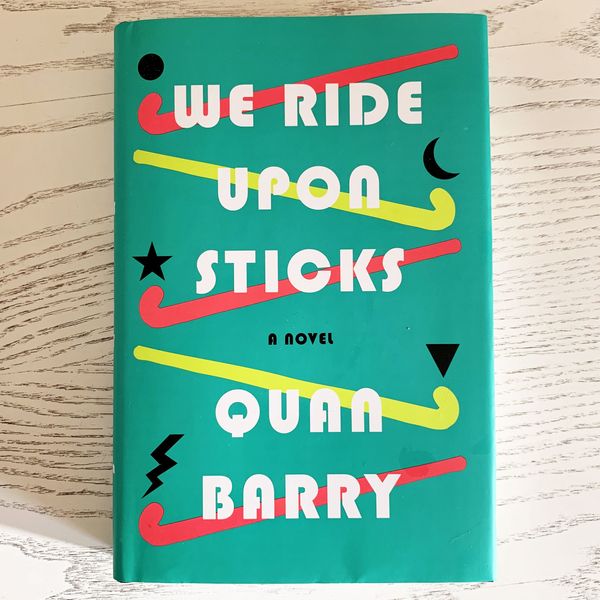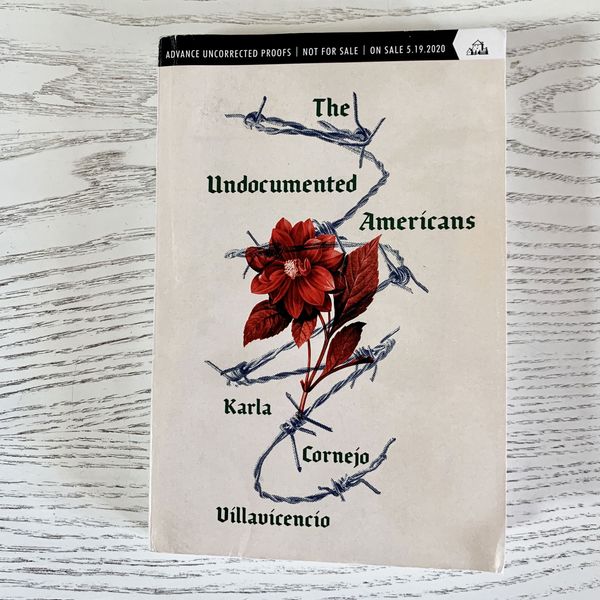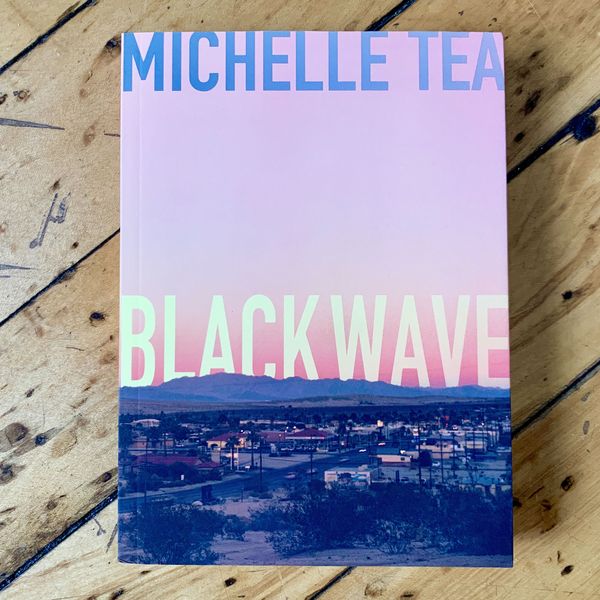
My reading stamina has not been great this month. Initially I blamed the material (“Everything on my to-read list sucks!”), which culminated in being so annoyed at a particular book that I physically hurled it into a dumpster. Normally I try to redistribute books, even the ones I dislike, to loving homes — but in the heat of a squalid passion, I felt that this one deserved to die. The moment of violence, I’m happy to report, didn’t escalate into more extreme acts. But I did continue to have trouble focusing, even as I finally hit upon some winners. It might be the sheer indoorsy-ness of the month: The fact that nature conspires so mightily to make us hibernate that all I want to do, perversely, is go outside and be distracted by leaves and flowers that won’t exist for three more months. Too bad. The books below are those that helped medicate my cabin fever, and possibly yours.
We Ride Upon Sticks by Quan Barry
Fiction, March 3, 2020
My definition of a great poem is basic and subtractive. I think of it like this: If you took all the good lines that a person would hypothetically underline in a novel, and then put them together without any filler, that is a great poem. Obviously this is the definition of someone who discovered poetry way after she discovered fiction. At any rate, if you proceed from this logic, it would stand to reason that a poet who attempted to write a novel would have a higher rate of success than a non-poet, because the poet’s tolerance for lame sentences will be far lower, for professional reasons.
This is a tortured way of telling you that this is a novel by a poet and it rules. The year is 1989 and a bunch of high-school girls who play field hockey discover a trick to wildly enhance their performance. The trick involves scribbling their names in a notebook that features Emilio Estevez on the cover and tying a thin blue strip of fabric around their biceps. Witchcraft might be involved, but not in a “fantasy” way. The prose style is neon and the laughs do not stop. I feel like the author wrote the entire book with an evil grin on her face.
RIYL: Salem Witch Trial lore, carrying a Ziploc bag of emergency snacks on your person at all times, sass, the concept of “The Virgin Suicides, but make it hilarious”
The Undocumented Americans by Karla Cornejo Villavicencio
Nonfiction, March 24, 2020
The author of this book, Karla Villavicencio, is the first to admit that she’s kind of a mess: overwhelmed, depressed, riddled with anxiety migraines and ulcers. Her methods of self-destruction are impressively varied. She ghosts her therapists, stares directly at the sun during solar eclipses, tells a broad range of people to fuck off, and recalls eating toothpaste as a child to see if it might kill her. But she’s also a Yale Ph.D. student with a Harvard undergrad diploma — one of the first undocumented students admitted to Harvard — and it seems as though her productivity is equal parts in spite of and fueled by the unrelenting cortisol spikes of existence.
I’m not sure where The Undocumented Americans falls, genre-wise. The pie chart would probably be 50 percent journalism, 35 percent memoir, 15 percent polemic. Villavicencio was born in Ecuador and moved to the U.S. as a small child, where her parents were already living in New York. Her project is to reveal a slice of undocumented America — not only Ecuadorians, but a broad swath — and indeed she succeeds in extracting stories that do not often appear in books released by major publishers. We meet the workers hired on a sub-rosa basis to clean up Ground Zero after 9/11. We observe a vodou ceremony in a lush Miami neighborhood, complete with priestesses and a machete and a mysterious blue drink. We eat donuts in a Flint, Michigan, church and learn about the effects of lead-flavored water on immigrants unable to read the posted warnings, which were all in English (spoiler: not good!).
The book reads like a thriller, less in the sense of being entertaining (though it is) than in its capacity to exact an elevated-pulse-and-pounding-heart reaction. Villavicencio has the kind of black humor that will either make you fling the book across the room or clutch it to your chest. I clutched.
RIYL: Managing your anger, Leslie Jamison, having a friend who is a “bad influence,” Philip Roth’s Patrimony
Black Wave by Michelle Tea
Fiction, December 2015
The heroine of this novel, Michelle, is 27 and a writer. She publishes zines. She smokes crack one time and dislikes it. This is 1999 in San Francisco, a time and place where the concept of “selling out” still exists and it is possible for a person with a part-time job in a bookstore to live in an apartment and have leftover income for restaurant sushi. One of her friends covers the cockroaches in Michelle’s kitchen with glow-in-the-dark paint so that the bugs provide radiant mobile entertainment at night. This stunt is a good index of the characters in the novel, who are lunatics of such specificity that they have to be based on real people. Michelle self-destructs in San Francisco and moves to Los Angeles with the goal of writing a screenplay. Her alcoholism worsens. Her new apartment also has cockroaches, which she starts killing with her bare hands. Apocalyptic events begin to occur, and then finally the apocalypse itself.
Black Wave impressed me as a time capsule about San Francisco, where I haven’t been in six years. (Which seems reasonable to me but surprising to people who return to their own home territories more often, for holidays and whatnot. Why would I go back? I spent 18 years there! I haven’t spent 18 years anywhere else!) Anyway, the last time I visited, even the sumptuous bay views weren’t enough to distract from the sense of being an infidel in land long annexed by Silicon Valley. This joyride of a book is the first thing in history to make me a tiny bit nostalgic.
RIYL: Maggie Nelson, Dodie Bellamy, inventing and perfecting new defense mechanisms, Welcome to the Dollhouse
WHY DON’T YOU…
Consume the fiction equivalent of salted BLACK LICORICE: abominable, European, sublime?
Pour a GOTHIC MYSTERY into a blender with one cup ornate prose, two tablespoons Lemony Snicket, and half a teaspoon Dickens, then chug it?
Clench your jaw with anxiety over the fate of an undocumented immigrant from Sri Lanka who possibly witnesses a MURDER in bougie Australia?
Climb this staircase if you’re a fiend for NYC real-estate lore or have had THAT DREAM about discovering an extra room in your apartment?
“Discover” an established CLASSIC like Alice Munro?
WEEP with me over the scourge of CORPORATE language?
SUGGESTED PAIRING
Complement your green beer on Saint Patrick’s Day with a spooky Irish mystery by Tana French. (This one is her best.)
Every editorial product is independently selected. If you buy something through our links, New York may earn an affiliate commission.
More From This Series
- Matrix and 9 Other Reads I Can’t Get Out of My Head
- The Listening House and 9 Other Reads I Can’t Get Out of My Head
- The Plot and 8 Other Reads I Can’t Get Out of My Head








